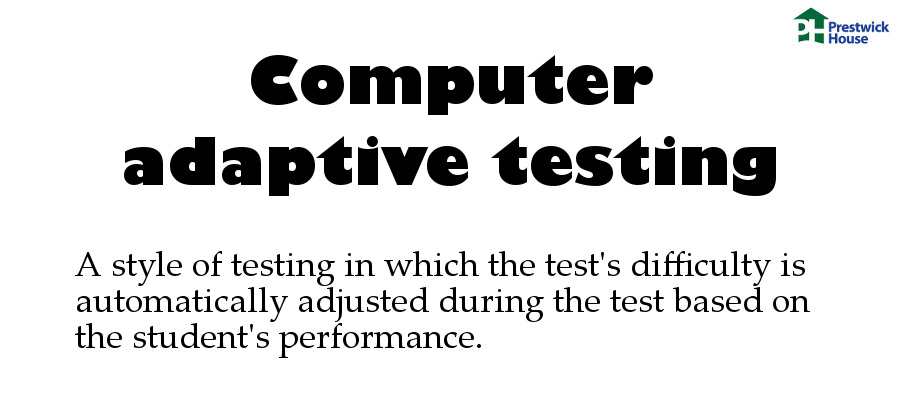Computer adaptive testing is becoming more prevalent. If you teach in a state that has joined the Smarter Balanced Assessment Consortium, it's likely that your CCSS assessments will be computer adaptive. This style of testing has some advantages over traditional tests—let's talk about how it works.
A word on traditional tests
To better explain what computer adaptive testing is, let's talk about traditional tests first.
In traditional tests, the difficulty of each question is fixed. And how could it not be? Most traditional tests are printed on paper, after all, and a piece of paper only accepts inputs (text from a pen) and does not produce outputs (some form of feedback to the student).
Not only is the difficulty of each question fixed, but the structure of the test is fixed as well. The number of questions on the test will not change whether the student demonstrates total mastery or gets every single question wrong.
So what's different about computer adaptive testing?
Quite a bit, actually. Computer adaptive tests can change their difficulty on the fly, adjusting to each student's ability level in real time. So how do they do it?
First, the testing program serves all students a question of medium difficulty. Because the test doesn't "know" anything about the students or their ability levels prior to testing, it can't yet serve students questions tailored to their ability levels.
The testing program then evaluates the student's performance on the first question. If the student did well, the program will serve him or her a more difficult question. If the student did poorly, the program will serve him or her an easier one.
This process continues until the student has answered enough questions for the program to estimate the student's ability to within a certain margin of error (which should be very small if the test is to be considered reliable). Thus, some students may be served more questions than others. Once the testing program has enough data to estimate the student's ability level, the test ends.
On a positive note, computer adaptive tests are usually much shorter than traditional tests, and they also have a higher level of precision when it comes to estimating ability levels.
How does this apply to CCSS assessments?
The answer depends on which state you teach in.
If you teach in one of the states that has joined the Smarter Balanced Assessment Consortium (see a list here), your CCSS assessments will likely be computer adaptive.
If you teach in one of the states that has joined PARCC (see a list here), your CCSS assessments will be adminstered on computers, but they will be fixed tests, not computer adaptive.
Any questions? Let us know!
If you have questions about computer adaptive testing, feel free to email us. We'll help you find the answers you need.
